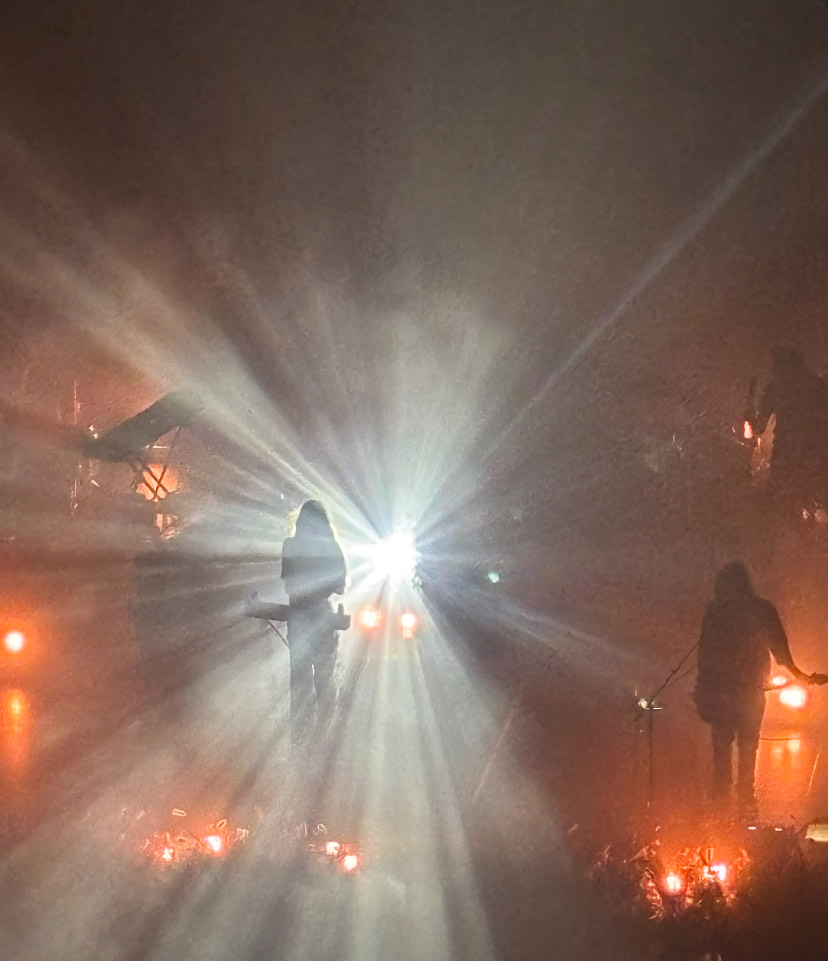Monday night marked the first full-dress rehearsal for the actors in Macalester College’s spring drama, The Resistible Rise of Arturo Ui, a work of “Epic Theater” by Bertolt Brecht. This rehearsal began what’s known in theatrical circles as “hell week,” so named for the long, trying hours each member of the production must work before opening night. But the majority of the work expected of the cast and crew lay behind them Monday. This group of students has been working hard since before their peers arrived back from winter break. “We came back early in January and rehearsed a lot,” said John Stark ’16.
Beginning to rehearse the play earlier in January, however, did not diminish the enormity of the task that this immensely talented crew of actors had on their hands. The scope of this play is wide, the subject matter is daunting, and, for this, only a truly dedicated ensemble could pull off what this group of Mac students accomplished in little more than a month.
“It’s just been a wild ride,” said John Dahl ’14. “We started the first day in January being practically off-book. We’ve been working intensively and very quickly.” Every cast member plays several roles, and as such there is a lot of running around on stage and backstage. The text is both complex and lengthy, making for a difficult play to commit to memory. But the actors manage to make this beast of a production clear to the audience to the degree the author intended.
These long hours have obviously paid off for cast and crew. The show, Brecht’s rewrite of Adolf Hitler’s rise to power, features Alana Horton ’16, as the titular character, a Chicago gangster of the ‘30s who, through violence, bribery, and blackmail, turns himself from a washed-up nogoodnik into a dangerous, brutal autocrat. Ui would be nothing without his cabal of equally slimy henchmen, each a stand-in for a famous Nazi.
But for a show about an oligarch whose ascent to near totalitarian power over Cicero and Chicago (symbolic of Austria and Germany, respectively) parallels the rise of Nazism, it is damned funny. Characters crack wise, speak in outrageous accents, and stumble around the stage like Chaplin. The satire of corruption and greed cuts deep.
“I think a mistake a lot of people make is not understanding some of the humor and nuance in it,” said Horton. “I think in this production specifically, we’re aiming for a very larger than life aesthetic, which can be very comedic at times, although it’s steeped in tragedy.”
The actors, in the style of Brecht, try hard to let you know that you should be laughing at the ridiculousness of their characters’ immoralities and machinations. Stark said that the director, Barbra Berlovitz, a co-founder of the internationally renowned Theatre de la Jeune Lune, is a physical theater practitioner, and this fact has something to do with the much of the show’s blatant comedy.
“A lot of the work [in this play]…is highly physicalized. Physical ways of approaching the text… allow us actors on stage to find nuances in the text and allow us to be very, very funny and have moments that are very, very dark,” said Stark. The emphasis on physicality of the show immediately becomes apparent to the audience as the lights dim—from Ui’s attempts to learn how to comport himself in an authoritative manner, to the explosive performance of Stark’s murderous Giri, to John Dahl’s withered, senior Dogsborough, each actor gives a performance that transcends reality.
The comedy in this play should not be overstated, however. The timbre of the show alternates between the dark and the light, but its best moments come, arguably, when it manages to combine both elements in a moment. For this, the actors and actresses must have control over the comedic and tragic in this show. Their possession of this talent can be attributed to the yeoman’s work of director Barbra Berlovitz. Horton said, “I’ve had some directors who sort of sit back and say like, ‘Try something, try something,’ but Barbra will get on stage and act it out with her body. You see her talent exhibited all the time.” With a show as physical as Arturo Ui, guidance like this in the more physical aspects of the performance is essential. Her pedagogy is felt in each individual performance.
What’s more, for Berlovitz, teaching is one of the aspects she most enjoys while directing at the college level: “I like teaching in my profession. I’m passionate in what I do, and I think that’s important as a teacher.” To say it is a challenge, however, transposing the tragedy of life onto the stage in a play such as this would be a vast understatement. The drama is “enormous,” she said. Any play dealing with the ascent of one of the world’s most brutal tyrants would have to be enormous.
Moreover, for a show of this size and caliber, Berlovitz would “usually have six months with these people. We’ve had just five weeks, so it’s remarkable to have achieved what we achieved.” Berlovitz suggested that this achievement, accomplished in a minimal time span, could be due to the distinct qualities of the Macalester student. To interpret Brecht, one must have a political and social consciousness, something all Mac students seem to possess, and something that these actors definitely brought to the table. Berlovitz put it simply: “They’re great, they’re absolutely great.” And, as the process comes to an end, they are finishing this explosive show with a—literal—bang.







Maria Bell • Sep 12, 2019 at 3:11 am
Very nice post. I just stumbled upon your blog and wished to say that I’ve truly enjoyed browsing your blog posts. In any case I will be subscribing to your rss feed and I hope you write again soon!
Colin Berry • Sep 5, 2019 at 2:58 am
Sharing some thing is superior than keeping up-to our self, therefore the YouTube video that is posted at this juncture I am going to share by my relatives and mates.